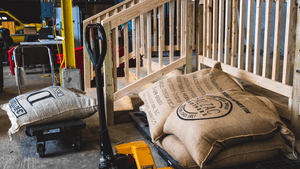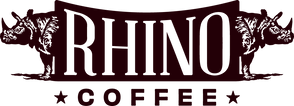Water Deraz
Walter Deraz owns a 0.5-manzana (about 0.35 hectares) farm in the Chalatenango department of El Salvador. The farm is home to around 1,400 pacamara trees. Deraz’s Natural coffees are dried for 25 to 32 days on African beds.
The farm faces the challenges of a difficult climate, recently experiencing a lack of rain. Deraz chooses to use Natural processing to reduce the amount of water needed and decrease the farm’s environmental impact. He also notes labor shortages as a challenge.
Microlots from El Salvador are sourced from different groups of smallholder producers and some established estates located throughout the country.
Chalatenango
Chalatenango, the “valley of water and sand”, is El Salvador’s coolest and northern-most region. Historically, the country’s top coffees have come from western El Salvador. In 2007, though, a Chalatenango pacamara won the Cup of Excellence bringing the region and variety center stage. We purchased that winning coffee, and promptly went to Chalatenango to cup coffees from more producers. Since that time, we’ve placed a green buyer associate in the region to expand relationships and provide support. From year to year, we’ve become used to cupping microlots of pacamara, pacas, SL-28, and Gesha, all grown by small producers who apply rigorous harvest and a range of processing techniques. Chalatenango is both special to us, and important to specialty coffee as a whole.
El Salvador Sourcing
As El Salvador continues to bounce back after the devastating effects of coffee-leaf rust, farmers are committed to trying to preserve as much of their heirloom varieties as possible, to mixed results. With yields down as much as 50 percent in places, it is a time of crossroads for Salvadoran producers, who face difficult decisions about what plants to cultivate in the incredibly rich volcanic soils.
One of Café Imports’s green-coffee buyers, Piero Cristiani, is from El Salvador, and his mother has been involved in the coffee industry for decades, imbuing Piero with a special passion for discovering and highlighting the best coffees the country has to offer. He is based in El Salvador for a portion of the year, which allows him to develop and maintain strong relationships there, and to keep an eye on the quality and volume of coffees year by year.
Thanks to his vision and initiative, we have been able to buy coffee in parchment and do the dry milling and final sorting ourselves, which not only provides more up-front finances for producers but also allows us to offer a range of coffee lots that are separated by process, variety, and even screen size, as we’ve had success with blended peaberry lots from various quality-focused growers in the Chalatenango region in particular. Of course, we also have more standard single-producer microlots, and are also working toward more Regional lots and perhaps even a version of our Best Cup competition to contribute to the strengthening of Salvadoran coffee for generations to come.







